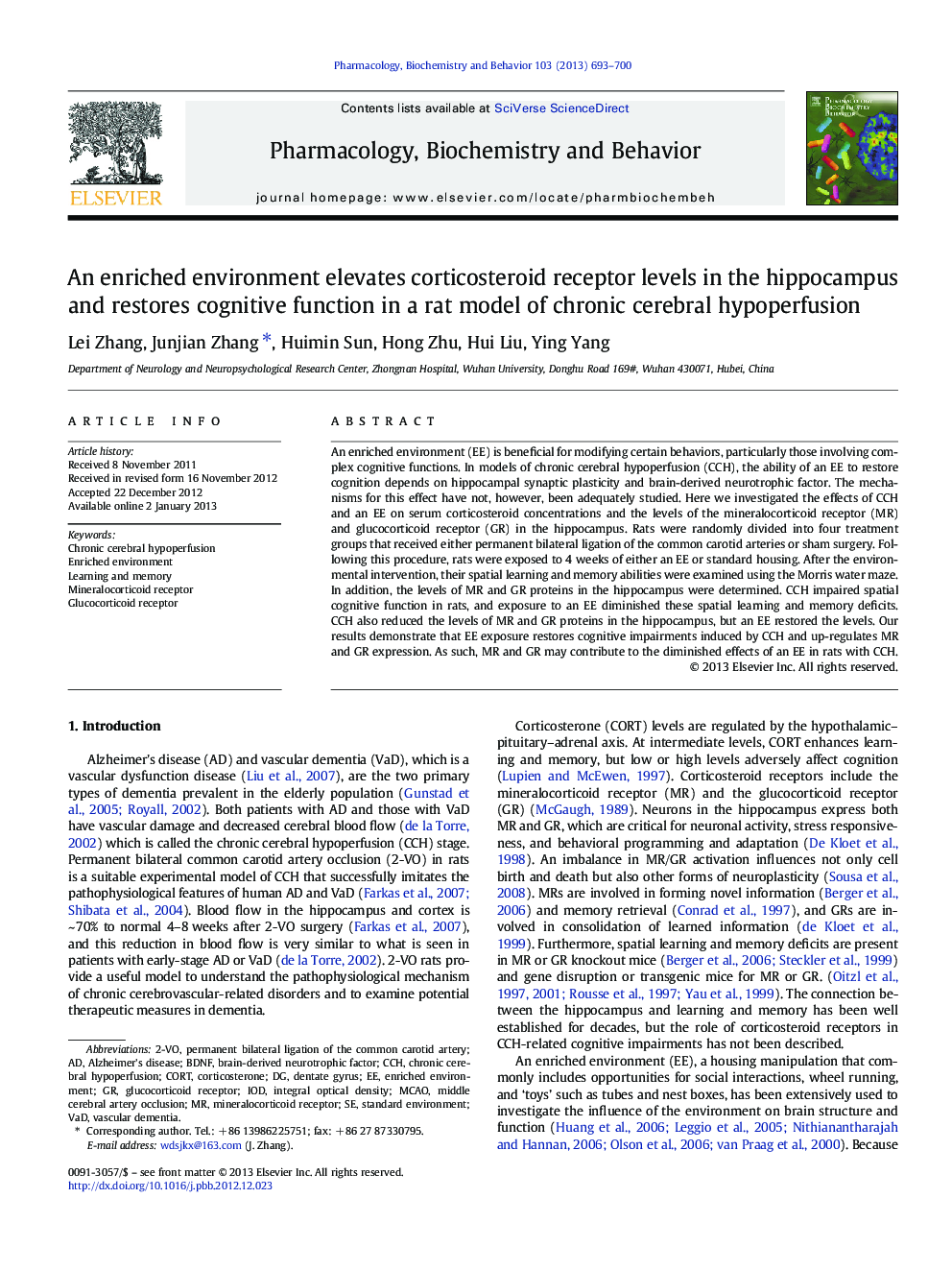| Article ID | Journal | Published Year | Pages | File Type |
|---|---|---|---|---|
| 2013041 | Pharmacology Biochemistry and Behavior | 2013 | 8 Pages |
An enriched environment (EE) is beneficial for modifying certain behaviors, particularly those involving complex cognitive functions. In models of chronic cerebral hypoperfusion (CCH), the ability of an EE to restore cognition depends on hippocampal synaptic plasticity and brain-derived neurotrophic factor. The mechanisms for this effect have not, however, been adequately studied. Here we investigated the effects of CCH and an EE on serum corticosteroid concentrations and the levels of the mineralocorticoid receptor (MR) and glucocorticoid receptor (GR) in the hippocampus. Rats were randomly divided into four treatment groups that received either permanent bilateral ligation of the common carotid arteries or sham surgery. Following this procedure, rats were exposed to 4 weeks of either an EE or standard housing. After the environmental intervention, their spatial learning and memory abilities were examined using the Morris water maze. In addition, the levels of MR and GR proteins in the hippocampus were determined. CCH impaired spatial cognitive function in rats, and exposure to an EE diminished these spatial learning and memory deficits. CCH also reduced the levels of MR and GR proteins in the hippocampus, but an EE restored the levels. Our results demonstrate that EE exposure restores cognitive impairments induced by CCH and up-regulates MR and GR expression. As such, MR and GR may contribute to the diminished effects of an EE in rats with CCH.
► Whether CORT and MR/GR involved in the effect of EE on CCH remains uncertain. ► EE exposure restores cognitive impairments induced by CCH. ► EE up-regulates the decreased expressions of MR and GR in hippocampus induced by CCH. ► MR and GR may contribute to the diminished effects of an EE in rats with CCH.
